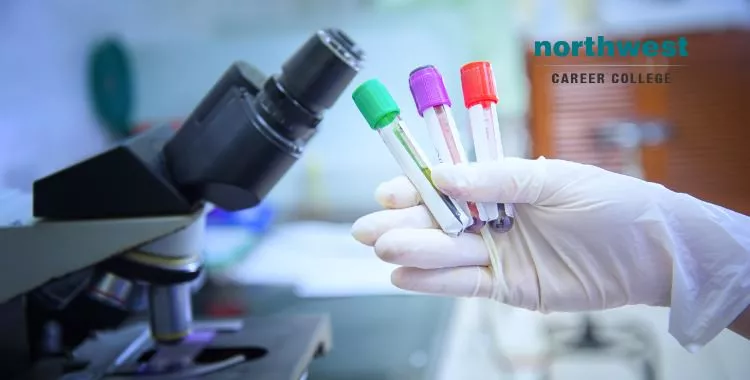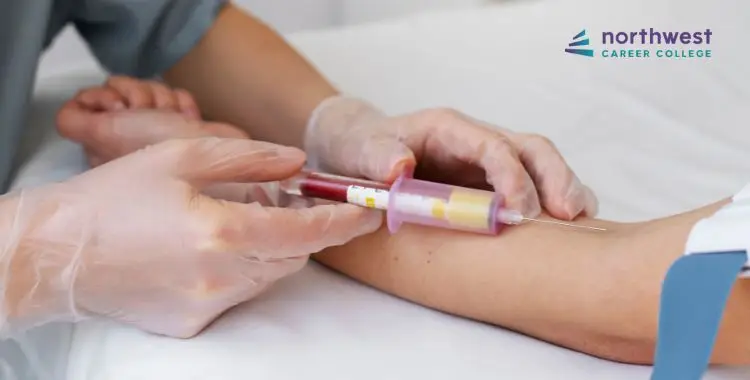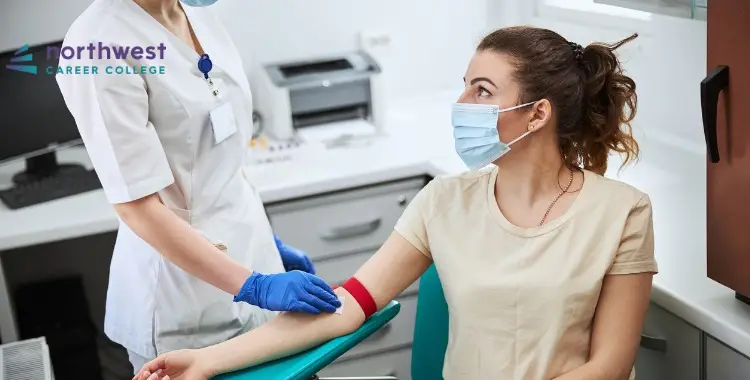The Evolution of Phlebotomy
- Phlebotomy Technician
- February 25, 2025
- 5.0k views
- 4 min read

Modern phlebotomy is defined by the dictionary as, “The act or practice of opening a vein for letting or drawing blood as a therapeutic or diagnostic measure; venesection; bleeding.”
Phlebotomy’s history actually began as “bloodletting,” which was first practiced by the ancient Egyptians around 1000 BC. Because early Egyptian medicine combined observation and experimentation with magic and religion, it was believed that literally letting blood out of the body would cure diseases like acne or the plague, as removing the blood was considered to be a way to cast out evil spirits.
Bloodletting spread to the Greeks and the Romans and because of their belief in “humorism” the idea that the body has four humors, one of which is blood, and that imbalances in those humor caused illness
Recovered Greek and Roman medical texts led to the use of bleeding as a medical treatment in Europe in the Medieval era. The thought surrounding the practice was that blood was stagnant in the extremities, not flowing through the body as we know it does today, and thus would cause disease. Releasing the stagnant blood would, therefore, cure the patient by forcing the blood to move.
Table of Contents
The Middle Ages
In the middle ages, bloodletting was not performed by physicians, but by “barber-surgeon”. These barber-surgeons also performed amputations and pulled teeth, which is why the red stripe on a barber pole is symbolic of the bloodletting portion of their profession while the white stripe represented tooth enamel.
Towards the end of the 16th century, surgery became more sophisticated as a number of fields of medicine began to advance and the job of bloodletting went back to trained physicians.
Bloodletting
By the 1800’s the popularity of bloodletting was high. For the procedure, the physician would make an incision in veins or arteries. They also used ‘cupping’, a method of blistering the skin so blood could be released from the blisters.
Leeches were also used to suck up blood, as they can suck up ten times their body weight in blood. Bloodletting at the time was thought to cure conditions such as acne, asthma, cancer, cholera, coma, convulsions, diabetes, epilepsy and many more.
There is very little evidence that bloodletting was an effective treatment, outside of edge -cases, where the patient had high blood pressure and releasing some blood, may have helped, or if a person had a high blood-iron level, in which case blood-letting may have reduced it.
It is far more likely that bloodletting had a placebo effect, with those receiving the treatment simply believing it was making them feel better.
The Death of George Washington
Of course, releasing too much blood from a body will do irreparable harm. An excellent example of a failed blood-letting is the death of George Washington.
In the days before his death, Washington had been complaining of a sore throat. When he woke one night and had difficulty breathing, several doctors were called, but before the doctor could arrive, Washington ordered estate overseer George Rawlins to remove nearly a pint of his blood.
When the doctors arrived, they continued the bloodletting (approximately five pints) was futile, and his condition deteriorated. Modern scientists have speculated that Washington probably had a simple throat infection, but that having been bled several times weakened him and depressed his immune system, making him more vulnerable to the fever that almost certainly eventually killed him.
Modern Phlebotomy
Phlebotomy, as we know it today, has a different use. It not used to simply release blood from the body, but to acquire a sample of blood from a patient for diagnostic tests under a physician’s orders. Moreover, taking a blood sample is a quick, safe and virtually painless procedure, performed by a certified phlebotomist, in a healthcare environment, using sterile tools.
Join One Of The Premier Phlebotomy Schools in Las Vegas
At our Phlebotomy school, we pride ourselves on providing one of the premier Phlebotomy Schools in Las Vegas. Our phlebotomy students have an 89% national exam pass rate and you can graduate in as little as three months. Our established seasoned instructors will take you through every aspect of Phlebotomy and Northwest offers day, afternoon and night classes to accommodate your busy Las Vegas work and family schedule. Call us today at (702) 403-1592 to speak to one of our admissions specialists about your new Phlebotomy career.



